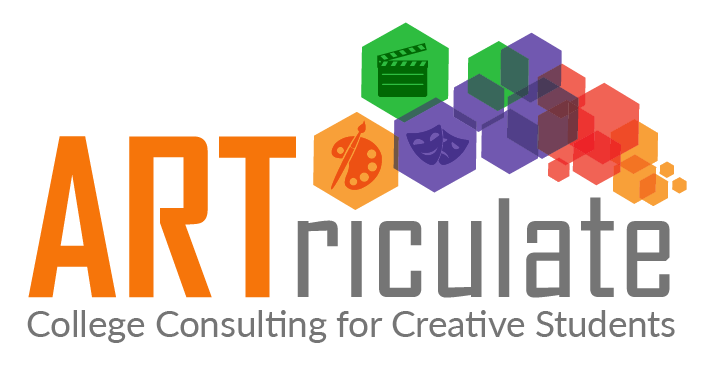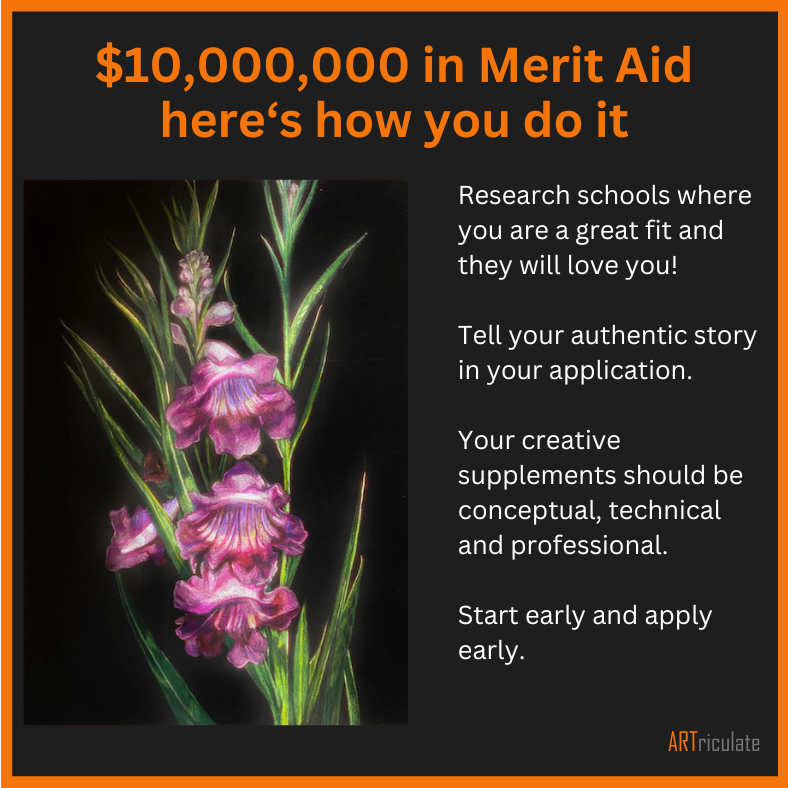Informing your college application journey.
14 Things Students Should Do Before The Semester Ends
Here are 14 things that students can do to finish the year strong. Juniors and even Sophomores can take these easy steps to set themselves up for strong college applications.
Everything you need to know about applying to film school
Are you hoping to apply to film school? There are some great programs at USC School of Cinematic Arts, Chapman Dodge College, Emerson College, and UCLA. There are also programs at traditional art conservatories such as Rhode Island School of Design, School of the Art Institute of Chicago, and Pratt. Starting early in high school is key to being prepared to submit great applications.
Juniors, here's your timeline for your college applications
This checklist tells you what Juniors should focus on and when as you apply to college. Junior year in high school can be very busy. Creative students need to start researching colleges early as they will need to prepare and submit portfolios and audition materials, in addition to writing many supplemental essays. A downloadable checklist tells you what you should focus on and when as you apply to college.
Submitting a Great Visual Arts Portfolio
Your portfolio might be the most important part of your BFA college application. Here are some tips for how to create your portfolio so you highlight your personal artistic narrative and stand out from other applicants.
Common Application Explained
The Common Application is the platform used by 900 schools to submit your application. The main components are the personal statement and the activities list, but there are other aspects to submitting your applications which are important as well, all outlined for you in this blog.
Over $10,000,000 in Merit Scholarships awarded to this year’s seniors!
Learn how to select schools who award merit aid and how to craft your applications to receive this great aid.
The Common Data Set
The Common Data Set provides an array of important information about colleges including acceptance data, graduation statistics, and financial aid information. It is a must have piece of your college research. Read this blog to learn more about it and how to find it for each school.
Tips for writing an exceptional Personal Statement
Your personal statement is your 650 word “elevator pitch” here are some tips for writing it.
Securing Strong Teacher Recommendations
A key part of your college application is your recommendations. This year probably more than before, those recommendations will be an integral way a college will learn about how you will contribute to their academic and social environment.
Completing the Extracurricular Activities Section
Learn how to write your extracurricular activities so they show your hard work. There are tips and tricks to writing this section, give it the time it deserves to tell colleges about all your passions and interests.
Applying and Auditioning for Theatre Programs
You want to study theater in college, it’s a long worthwhile road, here’s how to prepare your applications.
BFA Applications - More than just the Common Application
BFA applications start with the Common Application, but then there are many more requirements… essays, artist statement, descriptions of artwork, writing samples, creative samples. Read how you can be prepared to answer all the prompts.
Which college application deadline is right for you?
There are many different types of application deadlines: early decision, early action, regular decision, and rolling. Determining the best deadline for you means considering all the application requirements including creative supplements, as well as your financial aid requirements as different deadlines have different implications for aid.
Juniors, Four Great Tips for Writing Your Brag Sheet
We all hate bragging about ourselves, but sometimes you have to do it. Here are four great tips for writing a brag sheet and getting strong counselor recommendations, and ideas for your personal statement! A win-win for you!
6 Components of a Competitive Visual Arts Portfolio
Visual arts portfolios are often judged based on: concept, use of color, craftsmanship, composition/design, and observational drawing. Each college has their specific requirements for portfolios based on these characteristics.
Should you have a separate email for college applications?
There are good reasons to set up a college specific email to allow you to read important emails related to your applications, however, you have to remember to check it. If you don’t want to manage two separate emails then you might be better sticking with just one.
A short primer on FAFSA and other financial aid terms
FAFSA, the Free Application for Federal Student Aid, is your gateway for receiving aid from college as well as being able to apply for Federal loans. This blog also acquaints you with other financial aid terms you need to understand to determine the cost of the colleges to which you are applying.
Tips for writing amazing responses to supplemental prompts
The supplemental prompts on college applications can be as important as the personal statement and other materials. Spend the time to write responses that show colleges who you are and that you support their values.
RISD: Making your application stand out without the Assignment
RISD looks for students with exceptional technical skills and those that show successful risk taking. RISD loves curious students, you need to show that thirst to understand and problem solve in your portfolio. Your application is more than your artwork and we suggest you pay very close attention to the sequence in which you present your art, the descriptions which accompany each piece, and your personal statement in the Common Application.
What do you want your Personal Statement to say about you?
What are your experiences? What are your hopes and dreams? Who is your treasured community? What makes you come alive? Start answering these questions and you’ll be brainstorming your college essay.




















